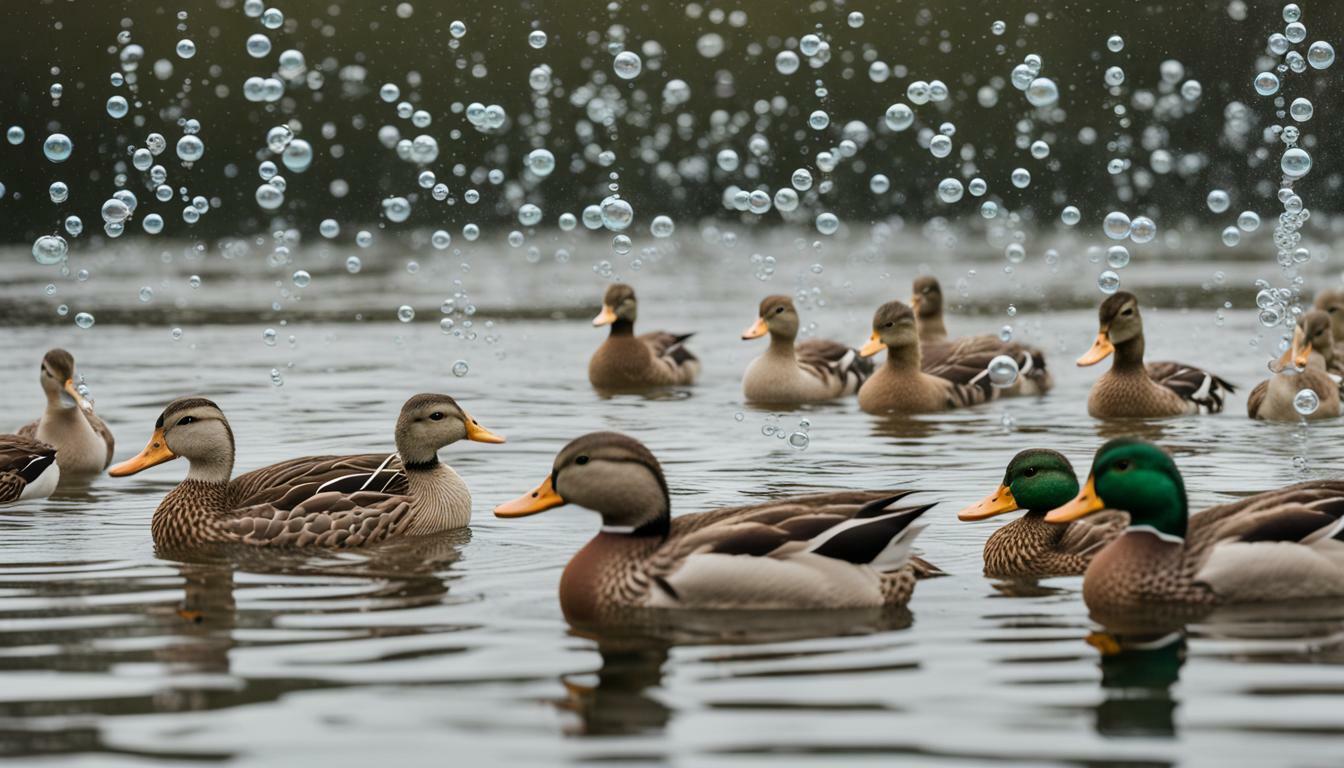Can Ducks Die From Loneliness?

Table of content:
Ducks are highly social animals that thrive when living in groups. But what happens when a duck is isolated from others of its kind? Can loneliness actually cause health decline and even death in ducks? In this article, we’ll explore the social nature of ducks, the impacts of isolation, and what pet duck owners can do to keep their birds happy.
The Social Nature of Ducks
Wild ducks form large flocks and are constantly surrounded by other birds. They communicate through vocalizations and body language, indicating factors like alarm, contentment, and aggression. Ducks preen each other, share information about food sources, and even synchronize their movements when flying together in formation.
Domestic ducks retain these strong social instincts. Pet ducks recognize their owners and fellow flock members. They establish social hierarchies and experience stress when group dynamics change. It’s not uncommon to see ducks in the wild spending most of their time grazing, swimming, and resting within a large group.
Problems With Isolation
When ducks are removed from their flock and kept alone, they are unable to engage in normal social activities. This deprives them of various forms of beneficial stimulation. An isolated duck can’t preen familiar companions, follow the lead of older flock mates, or establish its place in the pecking order.
Researchers have discovered that isolating social animals from others of their species can lead to symptoms of clinical depression. This includes:
- Loss of interest in normal activities
- Change in appetite
- Increased aggression or agitation
- Lethargy and lack of movement
- Excessive sleeping
- Self-mutilation behaviors
- Lack of grooming
Severe loneliness and deprivation in ducks is also associated with a weakened immune system. This makes isolated ducks more vulnerable to health threats like parasites, bacterial infections, and diseases.
Prolonged isolation can utilize the body’s energy reserves leading to muscle wasting and digestive issues. In extreme cases, ducks may stop eating and drinking entirely. Sadly, ducks separated from their flock have been known to die after only a few days or weeks alone.
Providing Companionship for Pet Ducks
Since it’s established that ducks are social creatures that depend on interaction, what should you do if you have just one pet duck at home?
The most straightforward solution is to get your duck a companion! Having at least two ducks allows them to satisfy their bonding, preening, and grooming needs with one another. It also lets them establish a mini-flock order and tackle challenges like predators as a team.
Ideally, a duck’s companion should be another duck. That’s because ducks speak the same social language. However, if introducing a second duck is not possible, there are alternative bird and animal pairings to consider:
- Another poultry bird like a chicken or goose
- A neutered cat or dog
- Small pets like rabbits or guinea pigs
Even providing a mirror in the enclosure can provide some illusion of companionship. And of course, human interaction is better than complete isolation! Spend plenty of time playing with, handling, and talking to a single duck.
Housing Considerations for Pet Ducks
To keep ducks happy and healthy, their housing needs to accommodate natural behaviors. Some key factors to consider:
- Open Space: Ducks need room to move around, flap wings, and engage in social activities.
- Water Access: A small pool, pond, or dish big enough to soak in is essential.
- Group Size: House at least 2-6 ducks together if possible.
- Enrichment: Provide toys, tubes, ramps, and other novel elements.
- Natural Lighting: Install bright lights to mimic daytime rhythms.
- Clean Bedding: Use straw or wood shavings and keep the pen dry.
By creating an environment that suits a duck’s social and behavioral requirements, owners can greatly improve the longevity and quality of life for their pets.
Signs Your Duck is Stressed or Unhappy
Even if you have multiple ducks, it’s important to watch for signals that something may be amiss. Here are potential red flags:
- Sitting still and withdrawn from the group
- Loss of appetite
- Decline in chatter, peeping, or other vocalizations
- Increase in aggressive behaviors
- Pulling out their own feathers
- Wounds from pecking other birds
- Staying near boundaries and avoiding others
- Unwillingness to swim or engage in typical activities
If you observe any combination of these signs, examine your duck care practices. Is there enough space per bird? Do they have enough enrichment and stimulation? Is bullying an issue? Consulting an avian veterinarian can help identify and resolve the root cause.
Final Thoughts
There’s no question ducks are social creatures that depend on interaction with others. Isolating a duck completely deprives them of crucial stimulation and companionship. This can quickly lead to depression, illness, and death.
Caring for ducks requires accommodating their needs for space, enrichment, and social bonding opportunities. With proper group housing, room to roam, and attentive ownership, pet ducks can enjoy long, fulfilling, and healthy lives.
The key for any potential duck owner is recognizing that bringing home just one is problematic. Providing companionship, tending to their natural environment, and being alert to signs of stress are the best ways to prevent loneliness in ducks and promote their well-being.
Welcome. I’m Adreena Shanum, the proud owner of this website, and I am incredibly passionate about animals, especially poultry. I founded adreenapets.com as a labor of love, stemming from my desire to share my knowledge and experiences with poultry enthusiasts worldwide.




